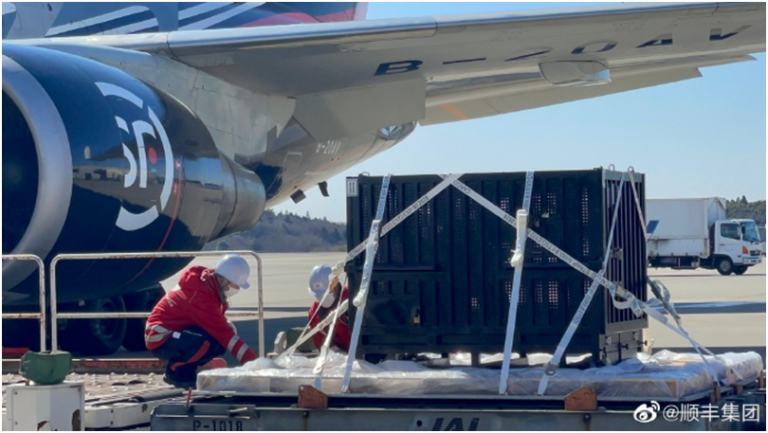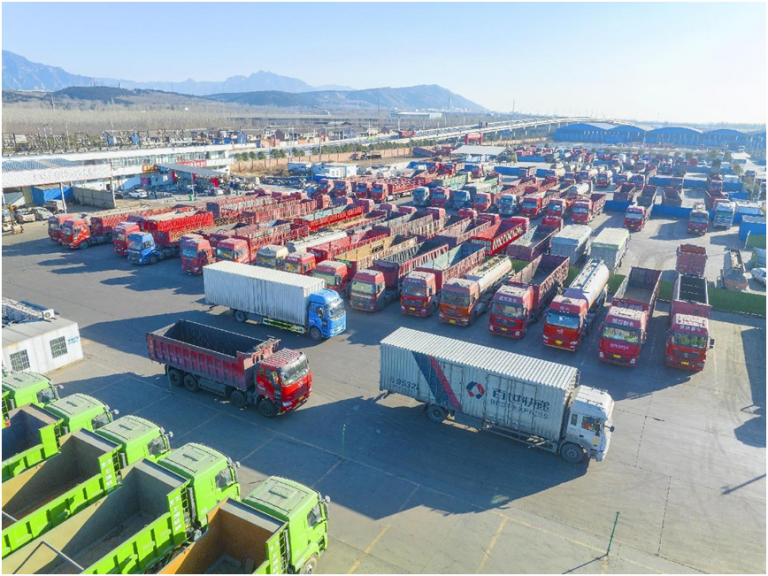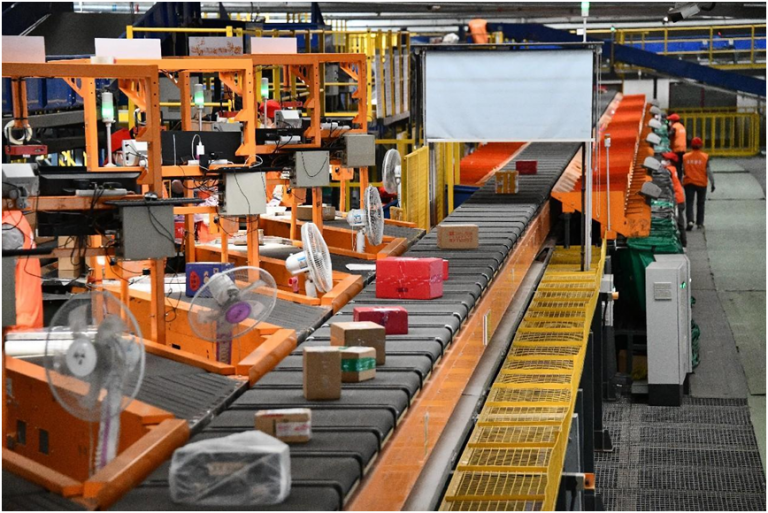
By Li Xinping, People’s Daily
International shipping of big live animals is one of the most difficult businesses in non-regular logistics. It is an important indicator for a logistics firm’s competitiveness. Only a few transnational shipping corporations are able to complete such missions.
Recently, Japan-born giant panda Xiang Xiang returned to China on an airplane of Chinese express delivery services provider SF Express, which marked the first time for a Chinese express delivery firm to transport a big live animal between two countries. It also indicated that the industry’s service capability and overall strength have reached a whole-new level.
This was not the first time for the Chinese courier industry to make a surprise.
Last August, the Qingdao Liuting International Airport in east China’s Shandong province was closed and the new Qingdao Jiaodong International Airport put into operation. The move was assisted by courier enterprises, too. SF Express almost “shipped” a whole airport, from gigantic facilities to insect specimens.
So far, the shipment of aero-engines, landing gear, airfoils and other parts has become a regular business of Chinese courier firm YTO Express, which makes the company a “logistics manager” for many airlines.
The progress made by the courier industry is also felt by individual Chinese consumers. Agricultural products that need to be delivered in a very short period of time , such as waxberries, strawberries, lychee, Chinese mitten crabs and flowers, are now massively shipped with high efficiency and low loss. Consumers are able to enjoy commodities from across the world without stepping out of their houses.
The progress has led to new opportunities.
Previously, courier enterprises were engaged in fierce competition in the shipment of e-commerce commodities as the courier industry’s growth slowed, and even started a “price war” that made the competition destructive.

Thanks to the enhanced service capability of the industry, more and more manufacturing enterprises are coming to courier companies today.
For instance, ZTO Express has reached cooperation with Foton Daimler Automotive, a joint venture between Chinese carmaker Foton and Daimler, which means the Chinese courier giant will provide whole-process supply chain services for the automaker. Besides, JD Logistics, the logistics arm of e-commerce platform JD.com has become a “storage planner” of Wafangdian Bearing Company Limited.
From offering after-sale logistics services to providing “mobile warehouses,” and to becoming integrated warehousing and distribution services providers, express delivery enterprises are turning into supply chain services providers and building new growth engines
The courier sector is an important part of the service industry. Its growth not only benefits itself, but also is conducive to the development and supply-demand circulation of other industries.
On the production end, the courier sector’s remarkable service capability is helping lower the logistics and warehousing cost for manufacturing enterprises. At the same time, as one of the few industries that are fully digitalized, the courier sector is also connecting sales and stock databases for manufacturing enterprises for better digital transformation.
On the consumption end, the upgraded logistics services have created new market demands and thus contributed to the expansion of domestic demand.
For instance, the retail price of fresh flowers had always been high because of the commodity’s fragility, short preservation and inconvenient transportation. Thanks to the breakthroughs made by courier companies in packaging and transportation, fresh flowers from Yunnanprovince, a major producer in southwest China, can now reach all major Chinese cities within 24 hours. This has made possible online sales of fresh flowers. According to statistics, between 2015 and the end of 2021, the e-commerce market for fresh flowers had grown to nearly 90 billion yuan ($13.05 billion).

The courier industry is like a bridge between the supply and consumption ends. If the bridge becomes wider and more flat, the match between supply and demand will be more efficient.
It is believed that as the Chinese courier industry continues to improve its service capability, it will further increase the efficiency of the manufacturing sector, better drive demand with supply and contribute to a virtuous circle of China’s national economy.










